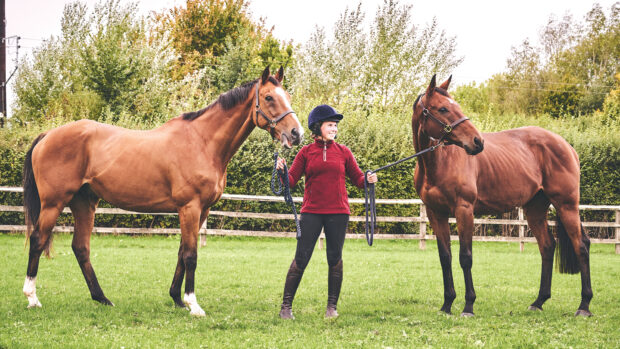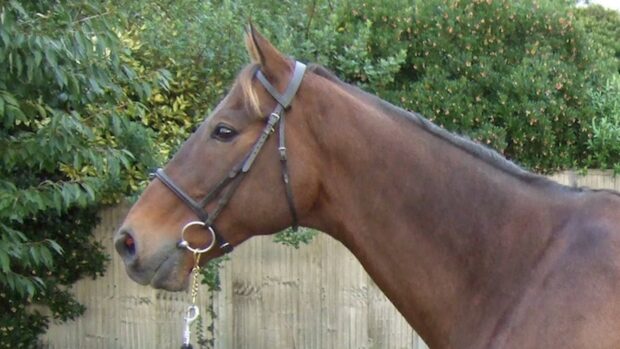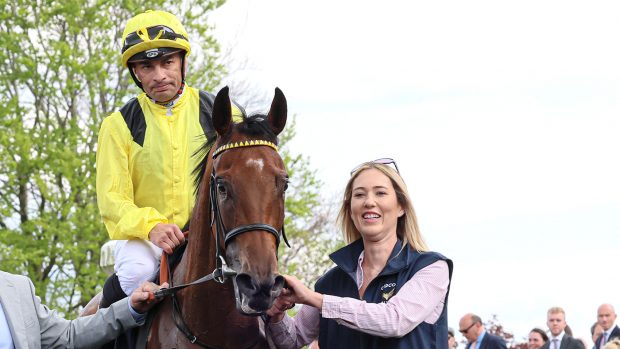Life as an investment banker in London could not be further from the rolling hills of the Herefordshire countryside. One person who knows that all too well is City slicker-turned-racehorse trainer Ed de Giles.
Having spent 15 years in the Big Smoke, Ed decided to swap a suit for a pair of wellies eight years ago — returning to the life he’d previously known when serving his racing apprenticeship in Lambourn, aka the Valley of the Racehorse.
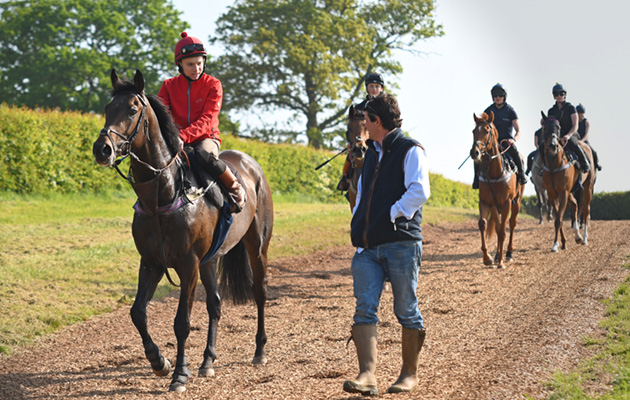
Over the years he has been growing his yard and now boasts a string of 30 horses, as well as top-class facilities which include an equine swimming pool, two gallops and a treadmill.
“I spent two years as assistant trainer to Nick Gaselee in Lambourn over the Party Politics era when he won the Grand National in 1992,” says Ed. “Then I went to the City to go and earn my fortune — which I didn’t do! The money I did earn, I have come to spend here very rapidly and we are enjoying it while we do it.”
As a former racehorse owner himself, Ed knows the realities of being an owner in the racing game.
“Whilst training is a lovely way of life, it is a business and you have to try and make it work. I was an owner in the City for a long time and I know what it is like to have the bills landing on your table every month, while the horse is not doing anything,” he says.
“You keep paying and nothing is coming back, so I try and have a plan for all these horses and try and have an exit strategy if the owner wants it. There will be some owners who might want to get a return out of the horse, so we try and sell in the blue with the horses and leave a little bit for the next man. If we do well, owners will reinvest and we have done very well in the past with horses we have sold.”
For Ed, it is a proven tactic that has worked in the past for both him and his owners; in 2014 Kashmiri Sunset was sold for 150,000 guineas — having been purchased for just 13,000 guineas two years earlier. While, Break Rank sold for 115,000guineas just over a year after being bought for 34,000 guineas.
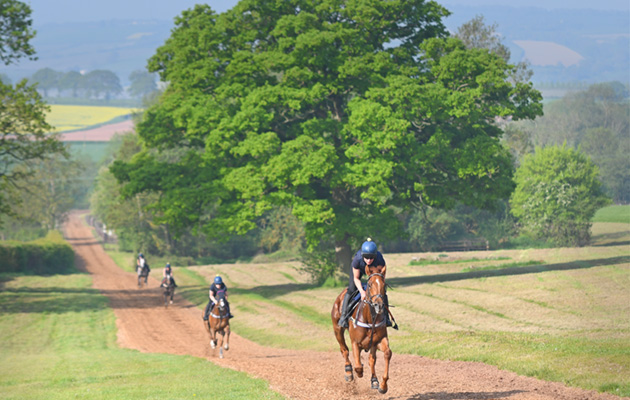
His 75-acre base near Ledbury is the perfect environment for racehorses.
“We have a lot of turnout paddocks — where the horses can be turned out after exercising, so they can let their heads down and relax,” says Ed.
“I think mentally for these horses, it is very important to let them out rather than them being cooped up all the time, so we try to get most of the horses out every day.”
The 50-metre equine swimming pool is also a brilliant addition to the facilities.
“It’s great, particularly for Flat horses who are often getting various niggles and problems — especially with running on fast ground, which puts quite a hammering on their knees and fetlock joints,” explains Ed. “They can continue training in their pool, as you can swim a lame horse and he might become sound in two weeks or so.
“We have got everything we want here to be able to do the job and it seems to be working,” he concludes.
For all the latest news analysis, competition reports, interviews, features and much more, don’t miss Horse & Hound magazine, on sale every Thursday.


